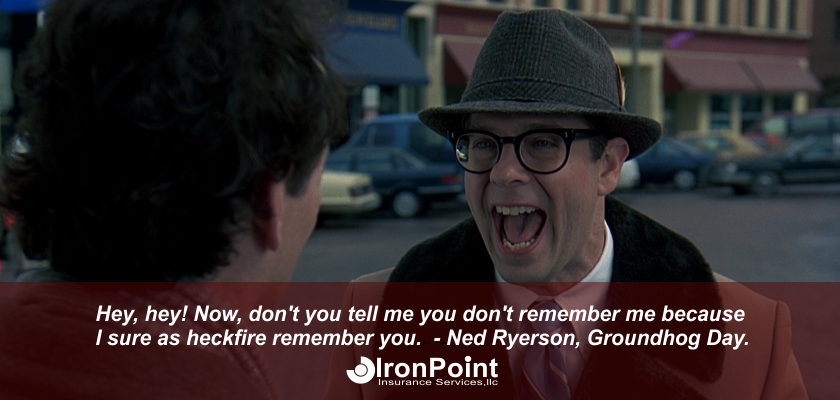Do I Need an Insurance Agent? Here’s Why the Answer Matters

We live in an era where you can buy almost anything online with a few clicks—including insurance. Online quote aggregators let you compare quotes, check prices, and complete a purchase without ever speaking to a person. Sounds efficient, right?
But here’s the thing: Insurance isn’t a commodity like a t-shirt or a cup of coffee. It’s a contract, full of terms, exclusions, and legal nuances that dictate what’s covered—and what’s not—when you need it most.
Yet, thanks to decades of price-driven advertising, many consumers ask the question: Do I need an insurance agent? The assumption is that insurance is easy enough to buy online without professional guidance. But that assumption can be a costly mistake.
The Insurance Buying Myth: Price is Everything
Back in the late ‘90s, GEICO changed the game with its now-famous slogan: 15 minutes could save you 15% or more on car insurance. It was a genius marketing move. By making price the focus, they trained consumers to think of insurance as a numbers game—find the lowest price and you win.
Other insurance companies followed suit, and today, price dominates the conversation. But here’s what those catchy ads don’t tell you:
- Not all policies offer the same level of protection.
- The cheapest option often comes with hidden gaps in coverage.
- You might be saving now, but it could cost you big later if you’re underinsured.
Why Coverage Matters More Than Cost
Think about it this way: Would you buy a car based on price alone, without considering reliability, safety ratings, or resale value?
Probably not.
Yet, when it comes to insurance—something designed to protect your financial future—many people make decisions based solely on premium price.
Here’s the reality: Insurance policies vary wildly. Definitions, exclusions, and conditions determine whether your claim is paid or denied. Some policies offer broad, comprehensive coverage. Others? Not so much.
If you’re asking Do I need an insurance agent?, consider this: A good insurance agent helps you understand these differences so you’re not left with unexpected surprises after an accident, lawsuit, or disaster.
The Digital Shift: Buying Insurance Online
No doubt, digital tools have made buying insurance more convenient. You can get a quote in minutes, compare providers, and purchase a policy without speaking to a single person.
For some, that’s a great option—if they know exactly what they’re doing.
But here’s where things get risky: Online comparison tools often highlight price but skip the details that really matter. They don’t explain:
- What exclusions apply
- How claims are handled
- Whether your assets are fully protected
That’s why an insurance agent is more than just a salesperson. They’re an advisor who helps you understand the fine print before you sign on the dotted line.
Real-World Insurance Mistakes That Cost People Thousands
Still not convinced? Here are a few real-world scenarios, directly from recent claims trends, where skipping an agent led to expensive lessons:
1. The Homeowner Who Thought They Had Flood Coverage
A homeowner in a high-risk area bought a policy online, assuming “water damage” meant flood protection. When a storm hit and flooded their basement, they were shocked to learn their policy excluded flood damage. The result? A $25,000 repair bill they had to pay out of pocket.
2. The Driver Who Chose the State Minimum
A young driver opted for the cheapest auto insurance available, selecting only state-minimum liability limits. A year later, they caused an accident, and the damages exceeded their coverage by $50,000. Since they were personally responsible for the excess, they faced wage garnishment and financial hardship.
3. The Small Business Owner With a Coverage Gap
A small business owner bought a general liability policy online, assuming it covered all potential risks. When an employee sued for wrongful termination, they learned employment-related claims weren’t covered under their policy. The lawsuit cost them $100,000—money they didn’t have.
The Role of an Insurance Agent: Beyond the Sale
So, do you need an insurance agent? More than you might think. A good agent:
- Assesses your risks: They ask the right questions to ensure you have adequate coverage.
- Explains policy details: They break down exclusions, conditions, and endorsements in plain English.
- Helps you avoid gaps: They recommend additional coverage where needed.
- Acts as your advocate: If you ever need to file a claim, they guide you through the process and help fight for a fair settlement.
In short, an agent’s job isn’t just to sell you insurance—it’s to protect you from making a costly mistake.
When Buying Online Makes Sense
There’s nothing wrong with buying insurance online if you’re confident in your knowledge. If you:
- Understand policy terms and exclusions
- Know how much coverage you actually need
- Are comfortable reviewing contract details yourself
…then an online purchase can work. But for most people, the value of an experienced agent far outweighs the small amount of time saved by skipping a consultation.
The Bottom Line: Don’t Buy Blindly
If you’ve been wondering, Do I need an insurance agent?, the answer depends on how much you know about coverage. Insurance is one of those products you hope you never have to use. But when you do, you need it to work—without surprises, loopholes, or unexpected coverage gaps.
That’s why working with a professional agent is a smart move. They help you make an informed decision, ensuring you get the right protection at a fair price.
If you don’t have an agent yet, let’s talk. At IronPoint Insurance, we take a consultative approach—helping you compare policies, understand your options, and find coverage that actually protects you.
Before you buy, let’s make sure you’re covered.
Let’s Get Started
Select the way you want to start your quote.







